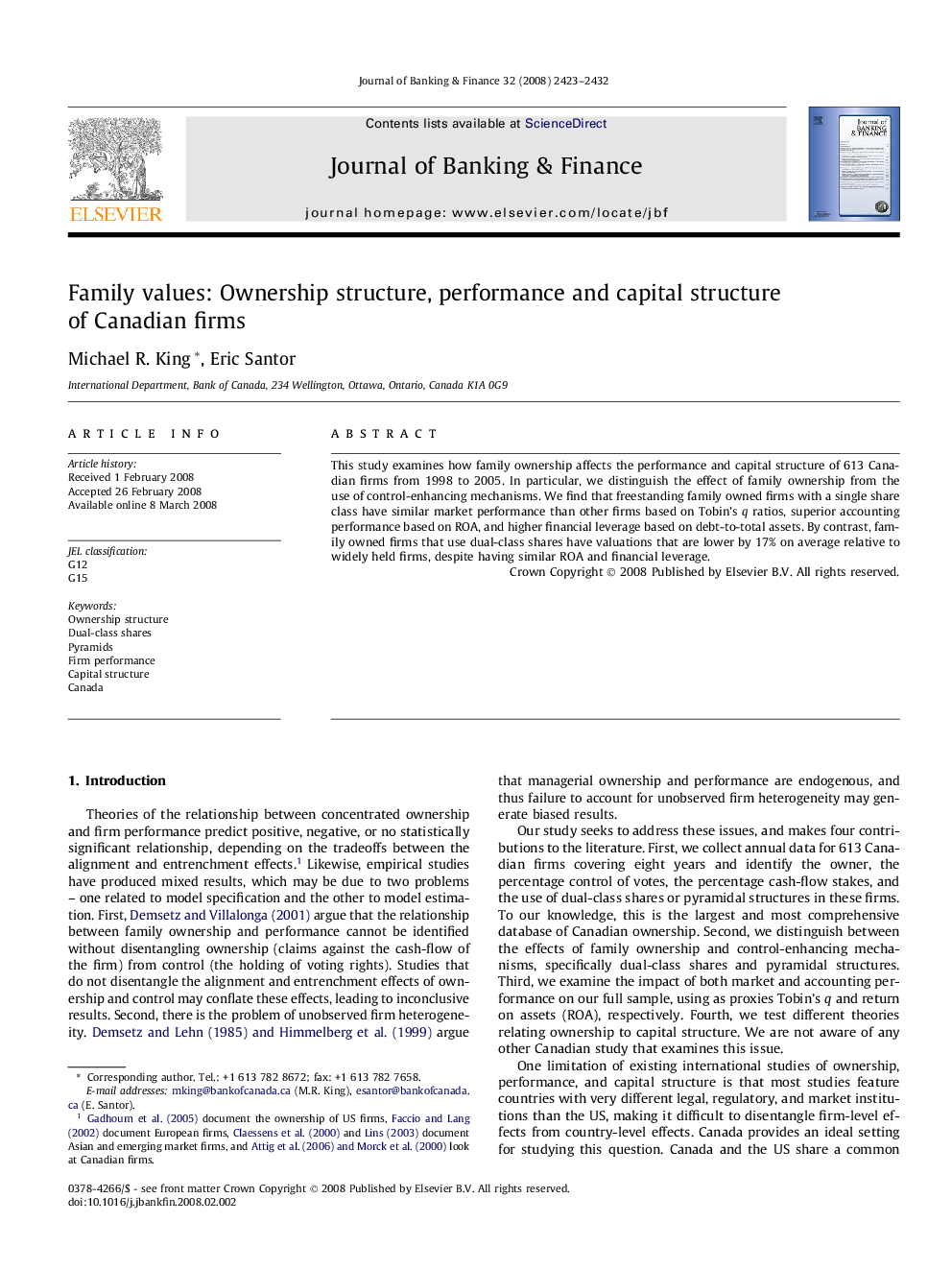| Article ID | Journal | Published Year | Pages | File Type |
|---|---|---|---|---|
| 5091126 | Journal of Banking & Finance | 2008 | 10 Pages |
Abstract
This study examines how family ownership affects the performance and capital structure of 613 Canadian firms from 1998 to 2005. In particular, we distinguish the effect of family ownership from the use of control-enhancing mechanisms. We find that freestanding family owned firms with a single share class have similar market performance than other firms based on Tobin's q ratios, superior accounting performance based on ROA, and higher financial leverage based on debt-to-total assets. By contrast, family owned firms that use dual-class shares have valuations that are lower by 17% on average relative to widely held firms, despite having similar ROA and financial leverage.
Related Topics
Social Sciences and Humanities
Economics, Econometrics and Finance
Economics and Econometrics
Authors
Michael R. King, Eric Santor,
